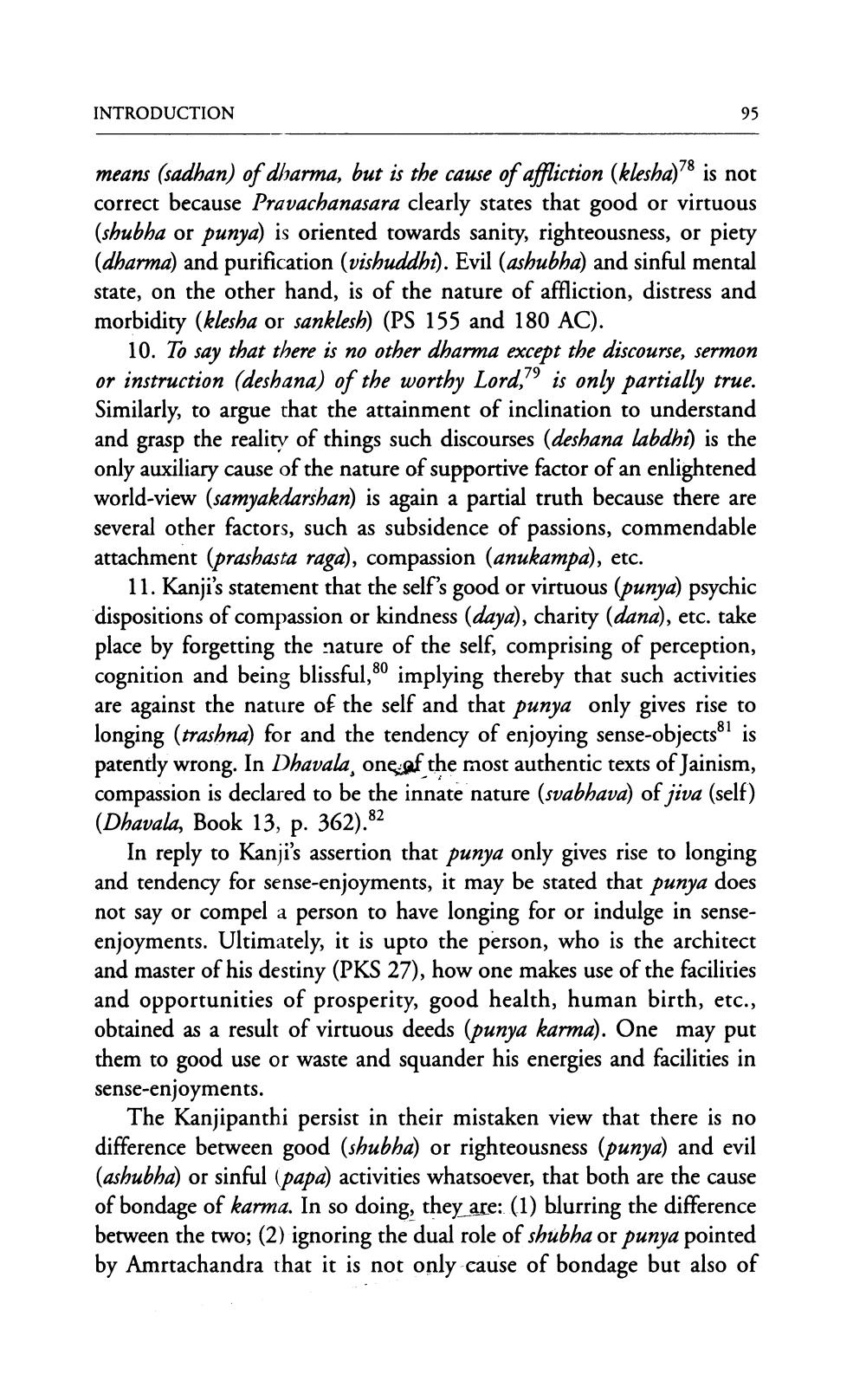________________
INTRODUCTION
95
means (sadhan) of dharma, but is the cause of affliction (klesha)78 is not correct because Pravachanasara clearly states that good or virtuous (shubha or punya) is oriented towards sanity, righteousness, or piety (dharma) and purification (vishuddhi). Evil (ashubha) and sinful mental state, on the other hand, is of the nature of affliction, distress and morbidity (klesha or sanklesh) (PS 155 and 180 AC).
10. To say that there is no other dharma except the discourse, sermon or instruction (deshana) of the worthy Lord,79 is only partially true. Similarly, to argue that the attainment of inclination to understand and grasp the reality of things such discourses (deshana labdhi) is the only auxiliary cause of the nature of supportive factor of an enlightened world-view (samyakdarshan) is again a partial truth because there are several other factors, such as subsidence of passions, commendable attachment (prashasta raga), compassion (anukampa), etc.
11. Kanji's statement that the self's good or virtuous (punya) psychic dispositions of compassion or kindness (daya), charity (dana), etc. take place by forgetting the nature of the self, comprising of perception, cognition and being blissful,80 implying thereby that such activities are against the nature of the self and that punya only gives rise to longing (trashna) for and the tendency of enjoying sense-objects31 is patently wrong. In Dhavala, one of the most authentic texts of Jainism, compassion is declared to be the innate nature (svabhava) of jiva (self) (Dhavala, Book 13, p. 362).82
In reply to Kanji's assertion that punya only gives rise to longing and tendency for sense-enjoyments, it may be stated that punya does not say or compel a person to have longing for or indulge in senseenjoyments. Ultimately, it is upto the person, who is the architect and master of his destiny (PKS 27), how one makes use of the facilities and opportunities of prosperity, good health, human birth, etc., obtained as a result of virtuous deeds (punya karma). One may put them to good use or waste and squander his energies and facilities in sense-enjoyments.
The Kanjipanthi persist in their mistaken view that there is no difference between good (shubha) or righteousness (punya) and evil (ashubha) or sinful (papa) activities whatsoever, that both are the cause of bondage of karma. In so doing, they are: (1) blurring the difference between the two; (2) ignoring the dual role of shubha or punya pointed by Amrtachandra that it is not only cause of bondage but also of




